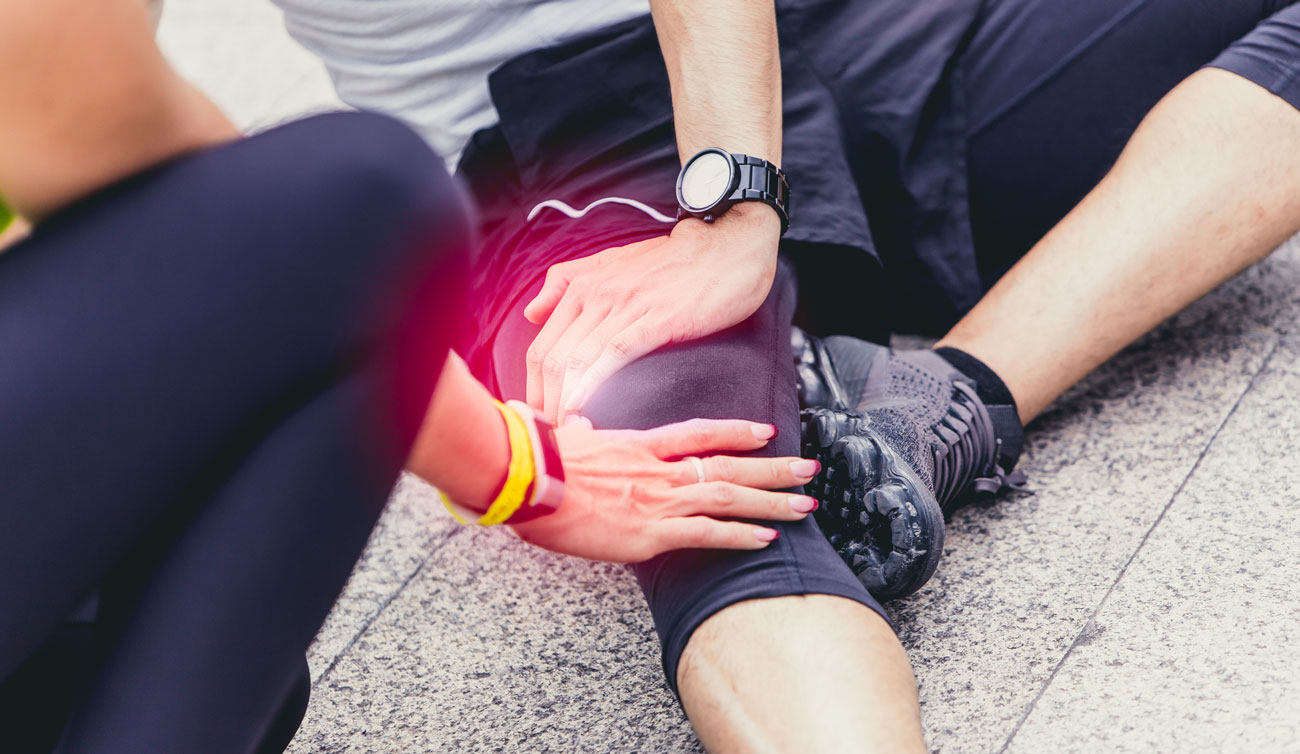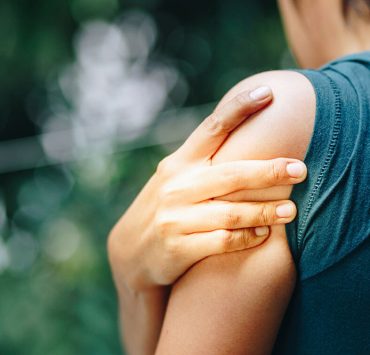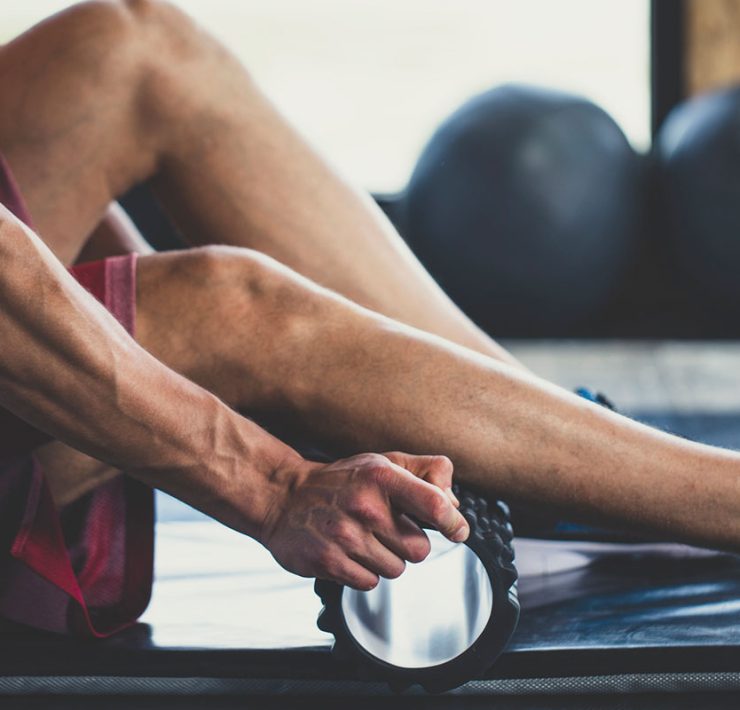We’ve all experienced it: You could be exercising, sitting at your desk, or even sleeping, and out of the blue you’re struck by the agonizing pain of a muscle spasm, also known as a cramp. So what the heck is happening when a muscle cramp occurs, and how can you prevent it?
What is a muscle cramp?
Muscle cramps are the painful contractions and tightening of the muscles that occur suddenly and involuntarily. They can happen to all or part of a muscle or even several muscles in a group. The most commonly affected muscles groups are the thighs, calves, hands, feet, arms and abdomen. They can range from a slight twitch to an intense pain that can last from a few seconds to 15 minutes! The cramping area might appear to twitch beneath the skin and be hard to the touch. It can recur multiple times before going away.
What causes muscle cramps?
The exact cause is unknown (idiopathic) and can happen for various reasons. Some researchers believe that muscle fatigue and inadequate stretching can cause abnormalities in the mechanisms that maneuver muscle contraction. The following factors may also lead to muscle cramps:
- Low levels of electrolytes and minerals like magnesium or potassium
- Dehydration
- Restriction in blood supply and circulation
- Sitting improperly or in one position for long periods of time
- Standing on extremely hard surfaces (such as concrete) for extended periods
Muscles are made of thousands of fibers that contract and expand to produce movement. When your body is stiff or poorly conditioned, the muscles are more prone to fatigue, which can affect spinal neural reflex activity. According to the American Academy of Orthopaedic Surgeons, “Overexertion depletes a muscle’s oxygen supply, leading to a buildup of waste product and spasm. When the cramp begins, the spinal cord stimulates the muscle to keep contracting.”
Studies show that some medical conditions can also make an individual more prone to muscle cramps:
- Alcoholism
- Kidney failure
- Pregnancy
- Hypothyroidism
- Spinal nerve compression
Can muscle cramps be prevented?
Since the exact cause of muscle cramps is unknown, there’s no surefire prevention method. However, the following tips can help you keep them at bay:
- Stretch thoroughly before and after exercising, to help prevent cramp-inducing muscle strains and promote circulation. If you’re in New York, a Zeel Assisted Stretch session will allow you to work with a professional to loosen tight, cramp-prone muscles.
- Stay hydrated! Drink plenty of liquids throughout the day (every day), sticking primarily to water and dialing back caffeinated, sweetened, and alcoholic beverages.
- Increase your intake of calcium- and potassium-rich foods like milk, bananas, and spinach.
- Avoid exercising in hot weather, which can deplete the body’s fluids and essential minerals.
- Maintain a healthy weight and regular exercise schedule.
- Discuss any medications you’re taking with your doctor, as some pharmaceuticals can cause muscles to become cramp-prone.
- Also discuss potential nutrient or mineral deficiencies with your doctor to make sure your muscles are being sufficiently nourished.
- Do some gentle stretching before bed to encourage your muscles to remain loose while you maintain the same posture for potentially long periods of time.
- A gentle massage technique such as Swedish massage will help muscles remain supple and limber while also promoting blood flow to the muscles, making them less susceptible to cramping.
How do you stop a muscle cramp in progress?
If you’re already in the throes of a muscle spasm, here are some steps you can take to treat a painful cramp that persists.
- Stop doing the activity that triggered the cramp!
- Stretch the affected area gently and hold it in the stretched position until the cramp stops.
- Apply a heating pad to tense muscles or a cold pack to sore and tender muscles. A warm bath can also help relax the muscles.
- Carefully massage the affected area with your hands, a foam roller, or other self-massage tool
- An over-the-counter anti-inflammatory medication such as acetaminophen or ibuprofen
Who is most prone to muscle cramps?
Some people are predisposed to muscle spasms as a result of lifestyle factors or simply their age. Endurance athletes, for example, should be extra cautious during the preseason period, when their bodies are less conditioned and more prone to fatigue.
Even non-athletes (and athletes, too!) experience an onset of muscle atrophy in their mid-40s. This makes us all more susceptible to cramping, as muscles lose efficiency, strength, and ability to detect and respond to changes in temperature.
If you experience cramps more regularly than you feel you should, you should consult with your doctor to try to root out the cause and make the best prevention and treatment plan for you.






